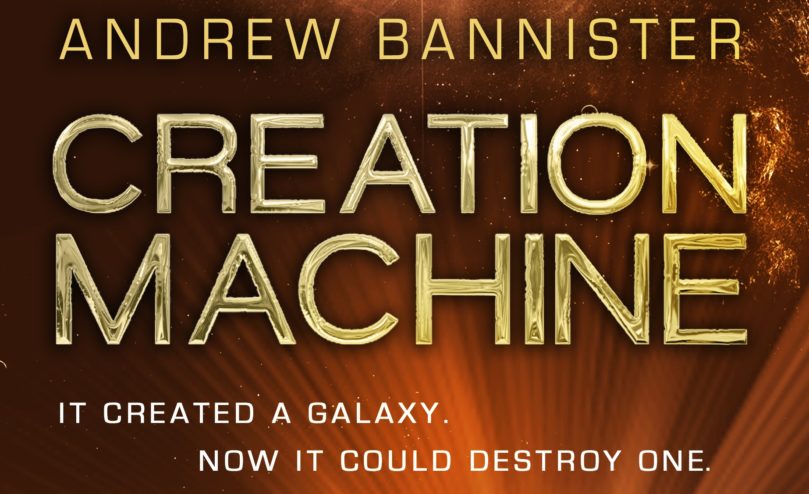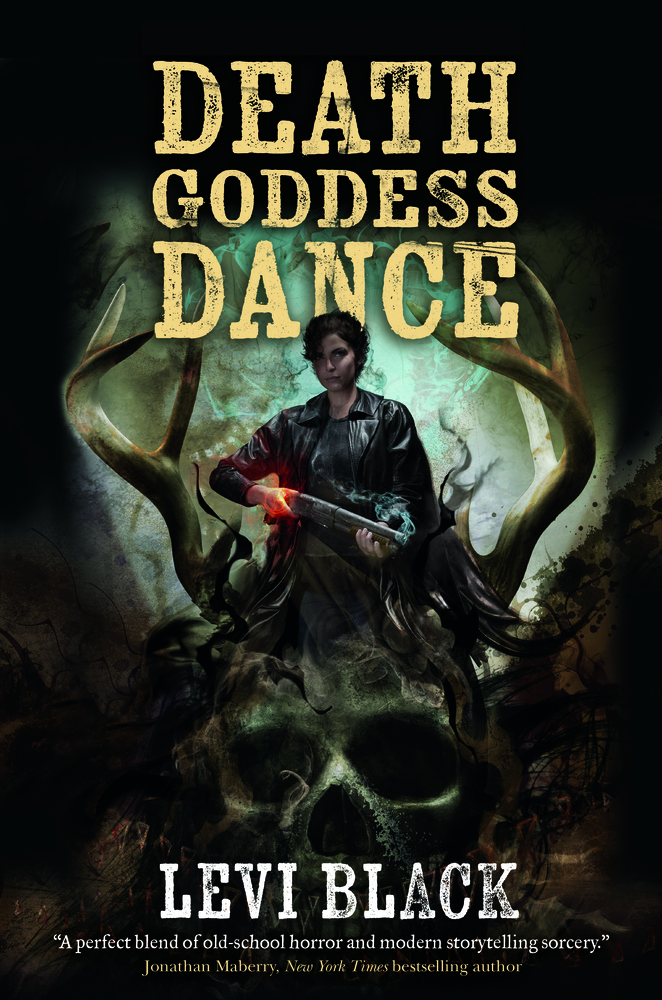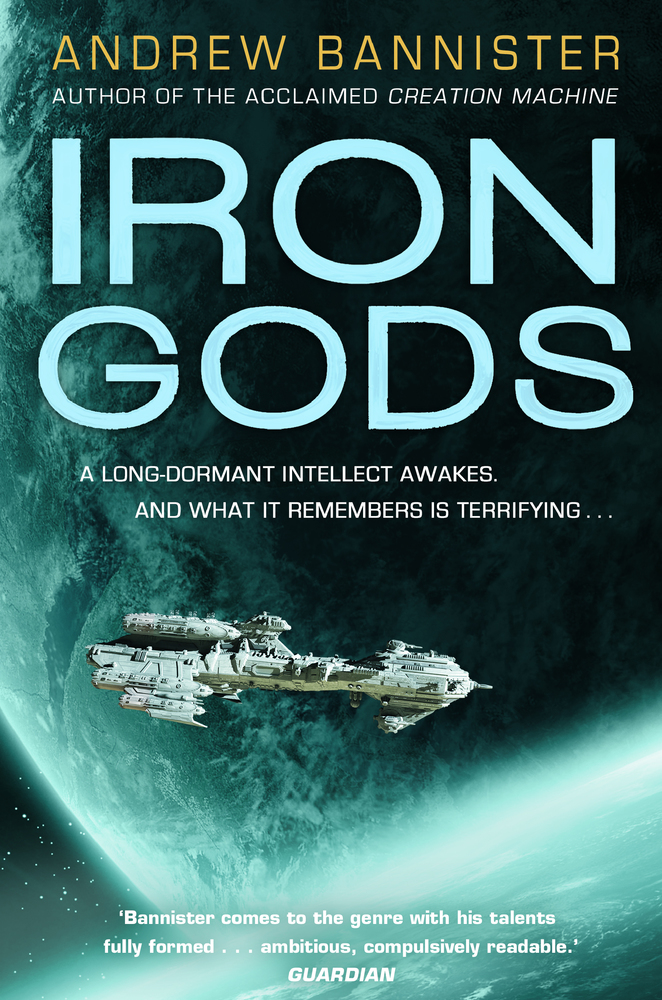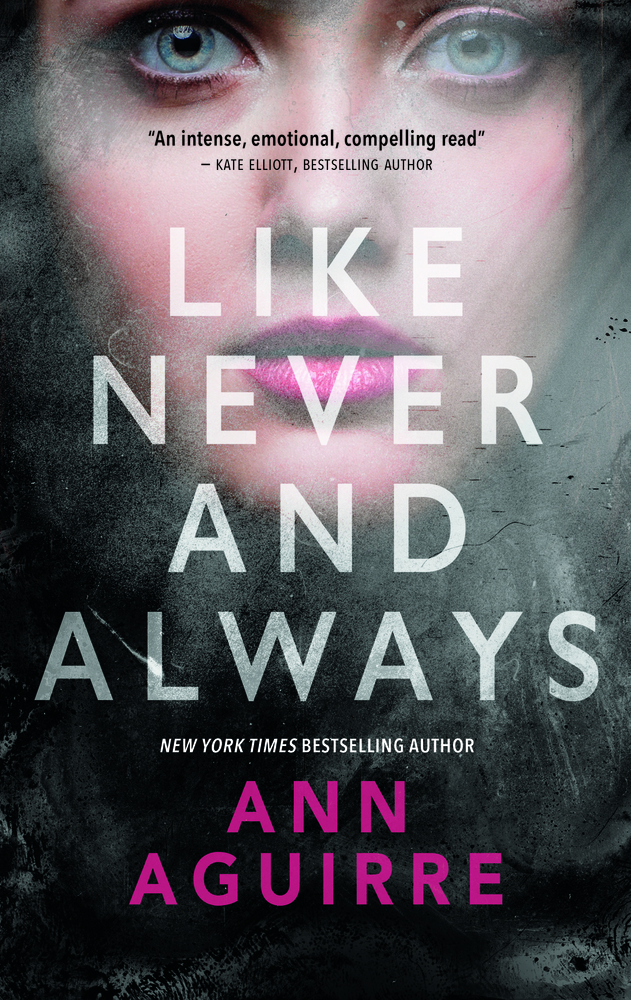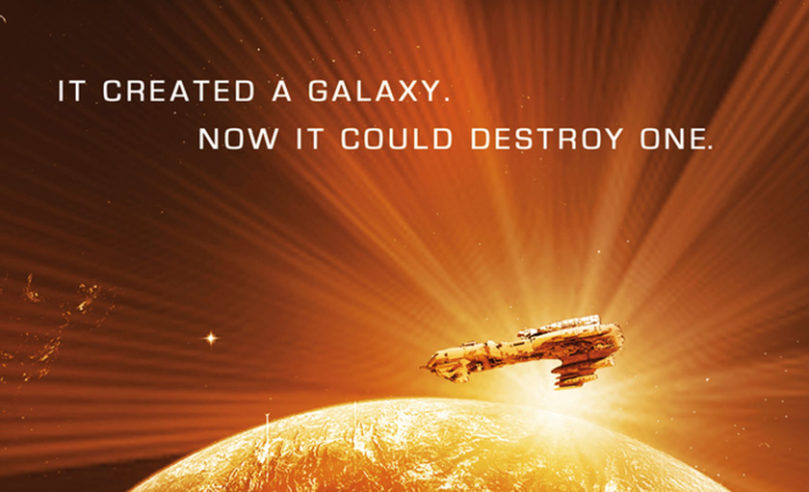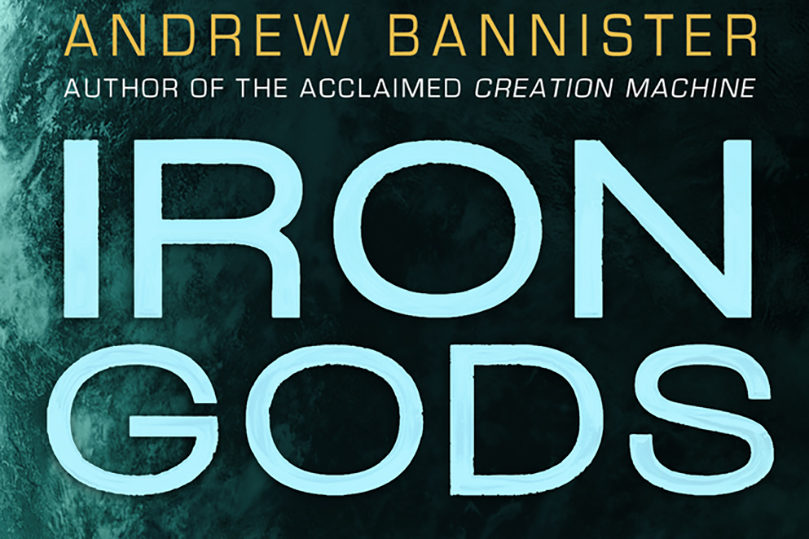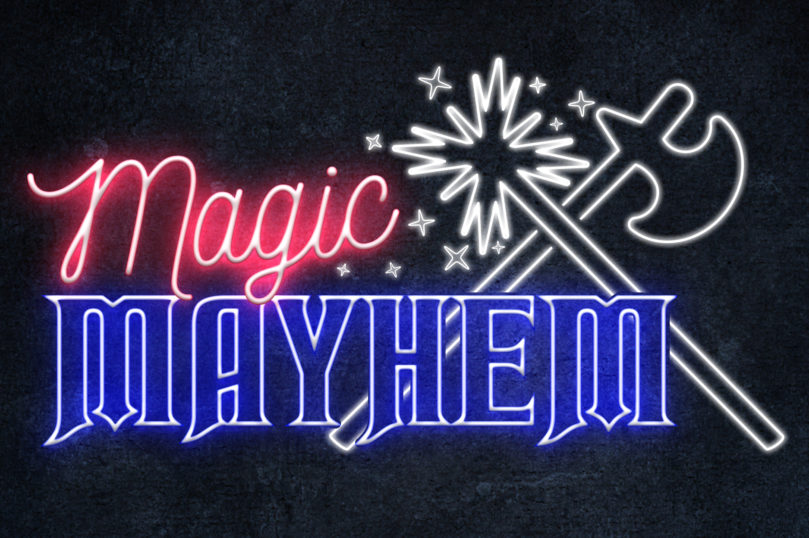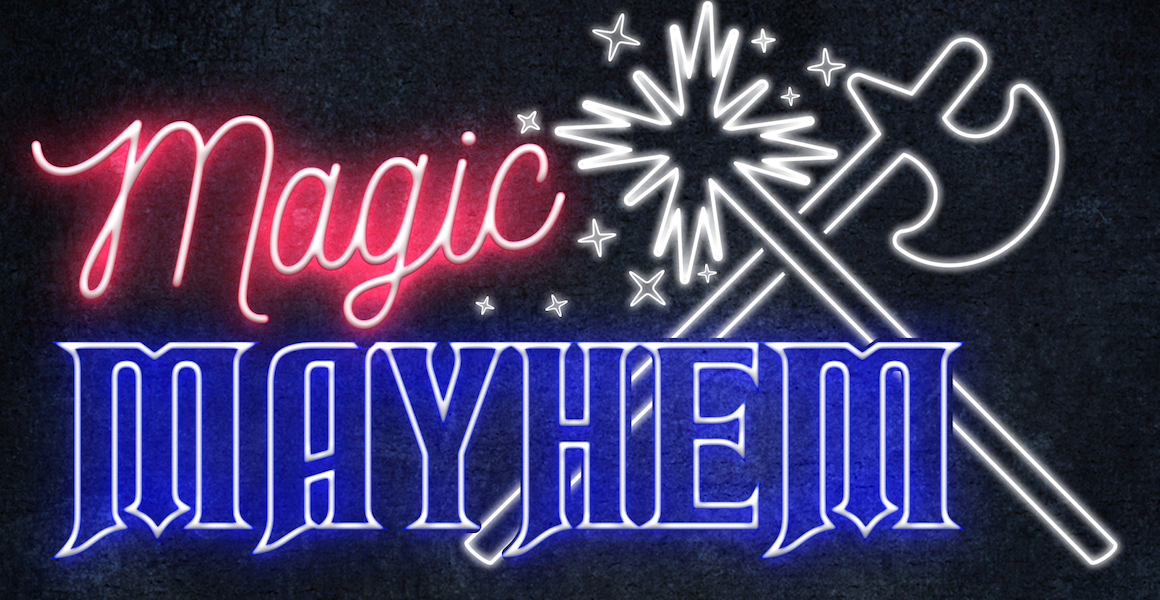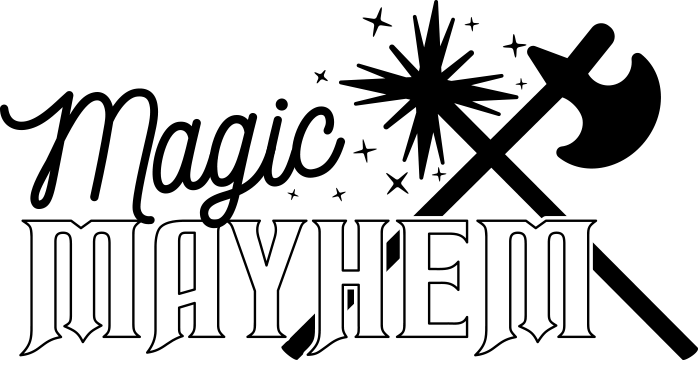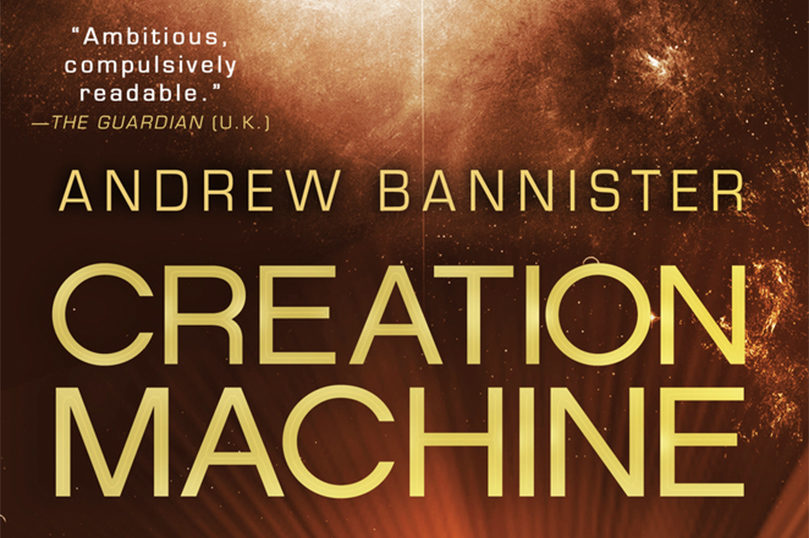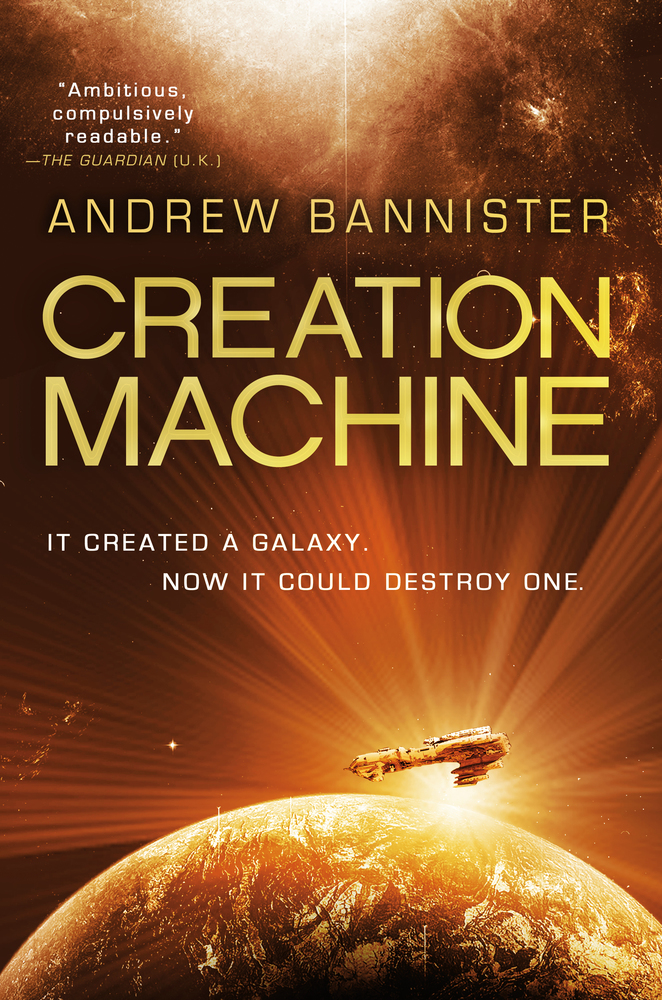A brilliantly conceived artificially created solar system, the Spin came into existence through the efforts of unknown engineers and their mysterious, sentient devices of creation. We asked author Andrew Bannister to introduce us to this world, the setting of his interconnected series that begins with Creation Machine, and continues with this summer’s opens in a new windowIron Gods, which puts some of the mayhem in our opens in a new windowMagic X Mayhem campaign.
By Andrew Bannister
If you haven’t encountered it before, the Spin can be a confusing place. You are not alone. Eighty-eight planets and twenty-one suns in a patently artificial cluster? Even people who live there are confused.
opens in a new window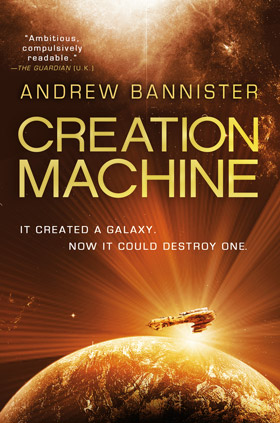 I wanted the Spin to be ancient and fundamentally mysterious – a place created, not arrived at by accident. A place whose creators are long forgotten. A place that runs on rules which are opaque. Hence, nothing is quite right. The suns should collide with each other, but they don’t. One of the planets has a figure-of-eight orbit. There’s an abandoned monastery on Obel Moon with a tower which floats off to one side of the main structure and inverts itself regularly like an hourglass. It’s physically ridiculous. At the very best, it suggests that the creators – whoever they were – had a good sense of humor.
I wanted the Spin to be ancient and fundamentally mysterious – a place created, not arrived at by accident. A place whose creators are long forgotten. A place that runs on rules which are opaque. Hence, nothing is quite right. The suns should collide with each other, but they don’t. One of the planets has a figure-of-eight orbit. There’s an abandoned monastery on Obel Moon with a tower which floats off to one side of the main structure and inverts itself regularly like an hourglass. It’s physically ridiculous. At the very best, it suggests that the creators – whoever they were – had a good sense of humor.
But, like anywhere else, the Spin is inhabited by people, and as we know people (in whatever form) are the greatest adaptors in the universe. Some authors write about places which are apparently Utopian, but where people somehow manage to be unhappy and unfulfilled. The Spin is the opposite – a dystopic mess, cruel and dangerous and unforgiving, but where some people manage, against all the odds, to be happy.
Some people, I said. Not all people!
So the peoples of the Spin have naturally formed themselves into some familiar socio-economic structures.
Think of the Spin as a misshapen globe of stars and planets. Within it, think of three roughly concentric shells – Outer Spin, Inner Spin and Cordern – with each of them having a story to tell. As with anything else in the Spin it’s not quite that simple, but stay with me.
The Inner Spin is the home of the Hegemony, the industrial-commercial combine run by Viklun Haas. It is efficient and amoral, the natural home of bankers and hungry corporations, and it uses economic hard power ruthlessly to protect its interests.
The Outer Spin, where the planets are thinly distributed and the pickings are poorer, has become the natural base for Society Otherwise, or Soc O, a loose leftist group of the disaffected, the young and the washed-up. It has no formal leadership, but its informal leader is Fleare Haas, estranged daughter of Viklun. Soon after joining up, she has met a young soldier called Muz. Things happen. Read the book.
The Inner and Outer Spin wrap around the Cordern, a small isolated area right in the middle. Here is where you will find the Fortunate Protectorate (if you’re not careful). This is under the de facto leadership of second-in-command Alameche Ur-Hive, administrator, politician and thoroughly creative psychopath, who has managed to build it up to a brutal, medievalist five-planet empire which is kept at arms-length by the Inner Spin – but the arms are not so long as to stop them from talking, trading and manipulating. At this point I should mention the spiky little floating Artificial Intelligence, Ambassador Eskjog, but again, you have to read the book to find out more about that entity.
opens in a new window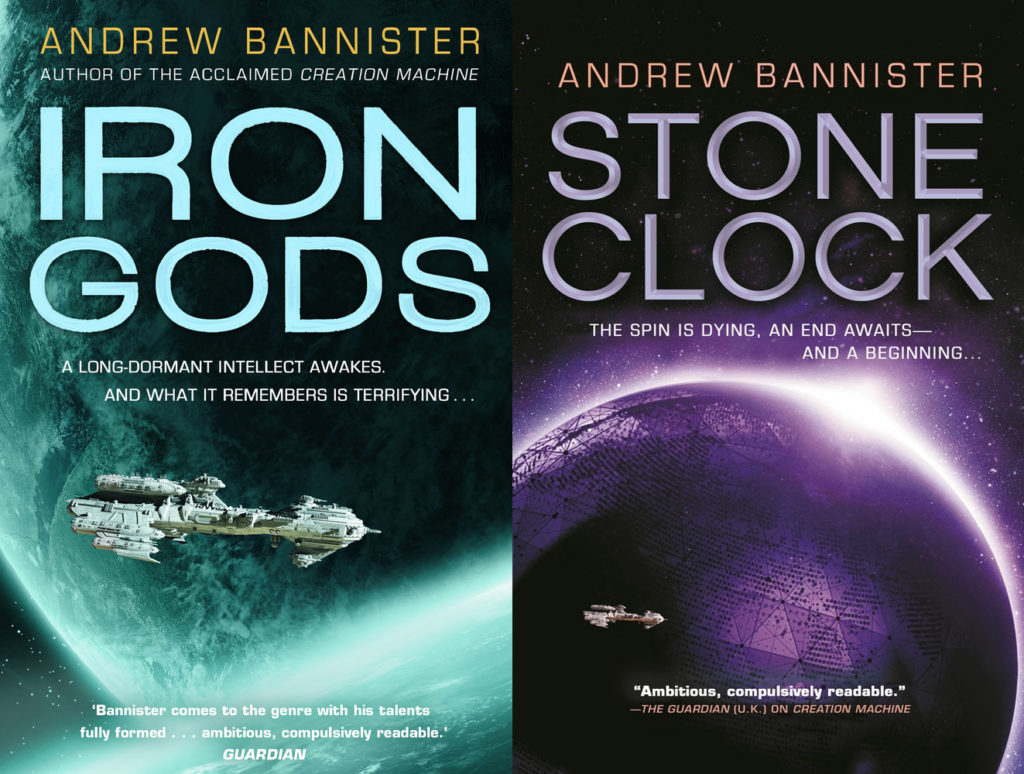
While rampaging around the Cordern, the Fortunate Protectorate have found something. They don’t know exactly what it is, but Alameche is sure that it must be worth something to someone, somewhere, and he is determined to extract the maximum value. In other words, money and power are still at the heart of things, even if you are millions of years in the future on the other side of the Universe.
For the moment, Alamech is trying to keep the discovery secret, but unknown to him there was a witness both to the discovery and to the genocide that went with it. The witness happens to be dead, but people have ways of dealing with that. And that’s as much of the story as I can tell you without major spoilers.
What else should I tell you? Well, if you don’t appreciate sex, violence, sarcasm, social commentary, politics, heroism, treachery, space battles, forest fires, naked ambition and generally being a bit confused – please don’t read opens in a new windowCreation Machine. And definitely don’t read opens in a new window Iron Gods or opens in a new windowStone Clock, books two and three…
Order Your Copy
opens in a new window opens in a new window
opens in a new window opens in a new window
opens in a new window opens in a new window
opens in a new window opens in a new window
opens in a new window
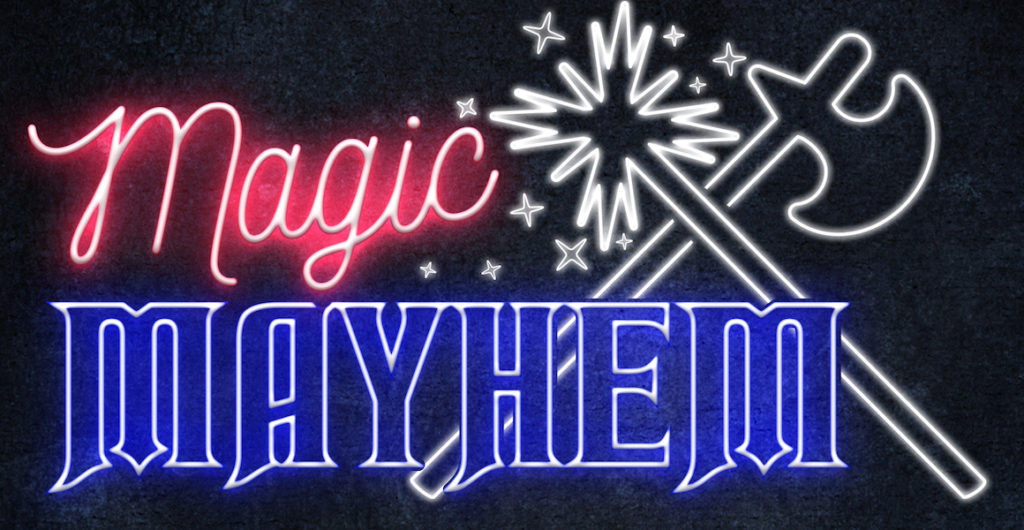
 About opens in a new windowCreation Machine:
About opens in a new windowCreation Machine: opens in a new window
opens in a new window opens in a new window
opens in a new window opens in a new window
opens in a new window opens in a new window
opens in a new window opens in a new window
opens in a new window

